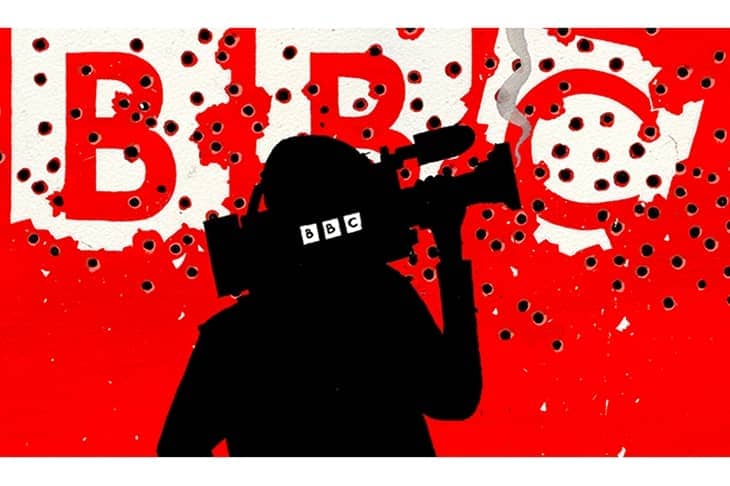I’m not sure what to think about the BBC’s announcement that it wants a quarter of its staff to be from working-class backgrounds by 2027. On the one hand, I’m against hiring quotas of any kind and think every position should be filled by the person best qualified for the job. But on the other, if the BBC is going to have diversity targets – and fighting against them seems futile at this point – then this one seems better than most.
The rationale for this quota, according to the BBC, is it wants its staff to ‘better reflect UK society’, but I’m not sure it will achieve that. The problem lies in the way the BBC has defined ‘working-class’.

To qualify for special treatment, applicants will be asked what the occupation was of the main parental earner in their household when they were 14. But what if they had no occupation? I know plenty of posh deadbeats who don’t work because they don’t need to. Would they be classed as ‘unemployed’ by the BBC box–tickers? And what about recent arrivals in the UK who have had to take menial jobs to make ends meet? My cleaner in the 1990s had been a professor of geology in the Soviet Union before its collapse.
No, if the BBC’s aim is to diversify the political attitudes and cultural taste of its staff, it should go the whole hog and stipulate that only white British working-class applicants – defined by a combination of household income when they were growing up and their parents’ education – are capable of meeting this target. They are the truly under-represented group among the BBC’s staff, as they are in all the professions, not least because they’re less likely to go to university than almost any other demographic. According to a report by the House of Commons Education Committee last year, the proportion of white British pupils eligible for free school meals participating in higher education by the age of 19 in 2018-19 was 16 per cent, the lowest of any ethnic group apart from travellers of Irish heritage and Gypsy/Roma.
The BBC completely neglects white working-class males, with the exception of Match of the Day
One reason that white British working-class people will continue to be under-represented at the Beeb in spite of the new quota is because the Corporation announced last year it wasn’t satisfied with just 15 per cent of its workforce being from BAME backgrounds and wants to increase that to 20 per cent. And many of the applicants who tick the BAME box will also tick the ‘working-class’ box, given that non-white people from low income families are more likely to go to university than whites. According to the Commission on Race and Ethnic Disparities, 59 per cent of black African pupils eligible for free school meals progressed to higher education in 2018-19, 58.6 per cent of Bangladeshis, 57.2 per cent of Indians, 47.1 per cent of Pakistanis and 31.8 per cent of black Caribbean pupils. So much for ‘white privilege’.
And that 16 per cent figure for poor white British pupils conceals an even starker figure – just 12.7 per cent of boys in this group progress to higher education, compared with 19.4 per cent of girls. That’s the truly disadvantaged group in modern Britain: white working-class males. It is their taste that is completely neglected by the BBC, with the exception of Match of the Day. But even for those brief moments of pleasure on Saturday and Sunday night, they have to put up with the BBC commentators extravagantly praising the Premier League footballers taking the knee before the game. The implication is that people like them are racist troglodytes badly in need of cultural re-education.
Of course, the BBC could avoid this criticism and stop worrying about how ‘represented’ different groups are by taking the simple step of becoming a commercial broadcaster. Provided white working-class men aren’t forced to pay the licence fee as a condition of receiving a live television signal, it won’t matter that their interests are being neglected and will continue to be for the foreseeable future. If the BBC becomes a subscription- funded streaming service – the British Netflix – it can lean in to its progressive, metropolitan bias instead of trying to downplay it. Given its global brand recognition, as well as its stellar reputation among international elites, I’ve no doubt it would be highly profitable. It could demonstrate its commitment to equity, diversity and inclusion by refusing to employ any white people at all, which may sound paradoxical but which would probably go over well with its affluent, highly educated subscribers. If it isn’t being funded by the taxpayer, no one will give a fig.







Comments